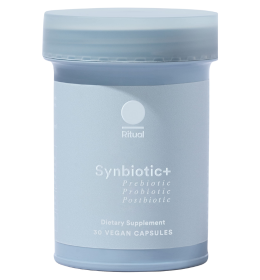Fermented Foods For Gut Health – 8 Best Fermented Foods That Are Beneficial For Your Gut In 2024

Fermentation sounds like some fancy culinary technique, but it’s pretty common. Think about bread, cheese, beer, and even pickles—all are fermentation products.
Fermentation is a chemical process where microorganisms, like bacteria or yeast, break down sugars and convert them into alcohol or acids. Fermentation extends the shelf life, creates unique flavors, and provides a variety of gut health benefits.
Our gut is home to trillions of microorganisms comprising our gut microbiome. These microorganisms are vital in digestion and our well-being. An imbalance in our gut microbiome can lead to gut conditions like irritable bowel syndrome and chronic illnesses like diabetes,[1] among others.
Now, research has shed light on how fermented foods can improve our gut health. Read on for the best-fermented foods for gut health.
8 Fermented Foods That Help With Your Gut Health
Here are the best-fermented foods to improve your digestive health:
- Natto.
- Tempeh.
- Kefir.
- Kombucha.
- Probiotic yogurt.
- Miso.
- Kimchi.
- Sauerkraut.
8 Healthiest Fermented Foods For Gut Health

An imbalanced or disrupted gut microbiome, called dysbiosis, has been linked to various health issues,[2] including irritable bowel syndrome,[3] autoimmune diseases,[4] and inflammation.[5] Factors contributing to dysbiosis include diet,[6] antibiotic use,[7] stress, and genetics.[1]
Conversely, a healthy gut microbiome is associated with better overall health. Improving your gut microbiome means cultivating a diverse and balanced population of microorganisms supporting digestion. The beneficial bacteria present in fermented foods[8] can improve gut microbiome diversity,[9] which is linked to better overall health.[10]
Here is the list of fermented foods for gut health:
Featured Partner Offer

Ritual Synbiotic+
- 3-in-1 formula: prebiotics, probiotics, and probiotics
- Supports a balanced gut microbiome
- Supports bloating, gas, and diarrhea
- Supports the growth of beneficial gut bacteria
- Vegan and Third-party tested
Get 25% Off First Month By Using “FALL25” at Checkout
Natto
Natto is a traditional Japanese food made from soybeans fermented with the Bacillus subtilis[11] bacteria. The mixture is left to ferment for 24-48 hours, and the bacteria produce enzymes that break down the soybean proteins into more digestible forms. This creates the characteristic sticky natto texture.
Research shows that consuming natto significantly modifies the gut microbiome,[9] and can improve gut symptoms,[9] including bloating, diarrhea, and constipation.
Aside from probiotic bacteria, natto is known for its strong nutritional profile.[12] It is a rich source of protein, fiber, and essential nutrients like vitamin K,[13] which is essential for bone health[14] and regulating blood clotting.[15]
Natto is traditionally enjoyed as a breakfast dish, often served over rice and garnished with various condiments such as soy sauce, mustard, or green onions.
Tempeh
Tempeh is another fermented soybean product made by fermentation with the fungus Rhizopus oryzae or Rhizopus oligosporus. Animal studies suggest that eating fiber-rich tempeh increases beneficial bacteria[16] levels in the gut.
Another advantage of tempeh is its improved digestibility.[17] The fermentation process breaks down complex carbohydrates and proteins found in soybeans, making them more easily digestible. This can be particularly beneficial if you are looking for foods that help with bloating and gas.
Fiber is prebiotic, meaning it feeds the bacteria already present in your gut, further supporting gut health.[8] Prebiotics are non-digestible carbohydrates that act as food for beneficial gut bacteria. Tempeh may promote the growth and activity of these bacteria by promoting gut microbiome diversity.
Tempeh is also an excellent source of plant-based protein[18] and a range of vitamins for gut health, including B vitamins and essential minerals[19] like iron, calcium, and magnesium.
Kefir
Kefir is a fermented milk product, like a drinkable yogurt. It’s made with kefir grains — small white balls containing bacteria and yeast. Its probiotics[20] may promote healthy digestion by breaking down food better.
It is especially helpful for people with lactose intolerance because the fermentation process reduces the lactose content.[21] Kefir may also provide immune system support[22] and reduce the risk of gastrointestinal infections.
Kefir comes in various forms, such as water-based, milk-based, and juice-based. This helps to accommodate dietary preferences and restrictions. Consume it as a beverage, blend it into smoothies, or use it in recipes as a yogurt or buttermilk substitute.
Kombucha
Kombucha is a type of fermented tea with proposed gut health[23] benefits, although the evidence is scant. This traditional Chinese tangy, fizzy drink is made by fermenting tea and sugar with a symbiotic culture of bacteria and yeast. The microorganisms consume the sugar, producing health-promoting organic acids, probiotics, and other compounds.
While research on the precise health benefits of kombucha continues, some studies[24] suggest that regular consumption may lead to improved gut microbiome balance. One notable component of kombucha is acetic acid, which adds a characteristic tangy flavor. Acetic acid creates a favorable environment for beneficial bacteria[25] growth while inhibiting the growth of harmful ones.
Probiotic Yogurt
Yogurt[26] is made by fermenting milk with bacterial cultures, primarily Lactobacillus and Streptococcus. Regularly eating live probiotic yogurt can promote a diverse and beneficial population of gut bacteria.[27] This can aid digestion, reduce symptoms of irritable bowel syndrome, and strengthen the immune system.
Yogurt is also easier to digest[28] for people who are lactose intolerant compared to regular milk because the bacteria used in fermentation help break down lactose. This can reduce symptoms like farting, gas, and diarrhea.
It’s easy to add yogurt to your diet. It is compatible with many meals and can also stand alone. Not all yogurts are live, so be sure to choose one with live and active cultures.
Miso
Miso is a fermented soybean paste. It is made by fermenting soybeans with salt and koji — a starter containing the fungus Aspergillus oryzae. Most notably, miso is used to make miso soup.
One study showed that miso soup is beneficial for the gut.[29] The cell-based research showed that the yeast in miso helps to reduce inflammation in colitis. Another study showed that it has potential anticancer[30] and cardioprotective properties. Miso is also a good source[31] of protein, vitamins, and minerals.
Kimchi
If you are on a vegan diet and need a plant-based fermented food, kimchi is a great option. The natural fermentation process of kimchi encourages the growth of lactic acid bacteria like Lactobacillus. The bacteria is known for its positive effects on the gut.[32] These include reducing constipation risk and improving colorectal health — potentially reducing cancer risk.[33]
Made from vegetables like Chinese cabbage and radishes, kimchi is a great source of dietary fiber, vitamins, and minerals. These nutrients provide additional support for digestive health.[33]
Sauerkraut
Sauerkraut[34] is a German national dish made from lacto-fermented cabbage. These beneficial bacteria break down the sugars in the cabbage into acid, giving sauerkraut its flavor, preserving the cabbage. They also provide a host of potential health benefits for the gut.
One study[35] showed that eating sauerkraut significantly improves symptoms of irritable bowel syndrome. One benefit is that sauerkraut might aid digestion by lowering stomach pH, creating an environment conducive to digestive enzyme activity.[36]
Sauerkraut is also a good source of dietary fiber[36] at 4 grams per cup. Fiber helps promote regular bowel movements[37] and prevent constipation. Fiber serves as a prebiotic, nourishing the beneficial bacteria in your gut.
Other fermented foods to eat for digestive health include apple cider vinegar and aged cheeses.
How Often Should You Eat Fermented Foods?

Some evidence-based health benefits associated with eating the eight foods above include:
- Providing beneficial bacteria that can improve your gut health and immunity.
- Lowering your LDL cholesterol,[38] otherwise known as bad cholesterol, and hence reducing the risk of heart disease.
- Enhancing the taste and texture of foods, giving them more flavor and complexity.
- Increasing the availability and absorption[39] of some nutrients, such as vitamin B12, iron, and zinc.
However, not all fermented foods are created equal. Depending on how they are made and stored, some may have more probiotics[40] than others. Some may also have added sugar, salt, or preservatives that can reduce their health benefits.
So, how often should you eat fermented foods? There is no official guideline, but most nutritionists agree that eating fermented foods at least once daily[41] can benefit your gut health. However, this may vary depending on your individual needs and preferences.
Some people may need more or less fermented foods than others. Some people may also have allergies or intolerances to certain fermented foods or ingredients. There’s also evidence that eating a lot of fermented food can be associated with poorer mental health[42] in high-stress conditions.
If daily consumption feels excessive or isn’t practical for you, eating fermented foods several times a week can still offer benefits.[43] It’s also important to add various fermented foods rather than relying on just one type. Different fermented foods contain various strains of probiotics, so diversifying your choices can help ensure a broader spectrum of beneficial microorganisms.
Lastly, fermented foods should complement a balanced diet. They are not a replacement for other essential food groups, so continue to include various fruits, vegetables, whole grains, lean proteins, and healthy fats in your meals.
The Takeaways
We’ve explored the relationship between fermented foods and gut health. Each has a unique blend of probiotics and nutrients, from yogurt to kimchi. These probiotic-rich foods can help us digest, absorb, and utilize nutrients effectively while providing essential vitamins, minerals, and prebiotics.
Aside from fermented foods, you can try probiotic supplements such as a debloat pill. It’s generally recommended to eat fermented foods daily[43] for gut health when possible. So make sure you add one or more of these fermented foods to your diet today.
Frequently Asked Questions
Sauerkraut, kimchi, and kefir are among the best choices. They’re rich in diverse probiotics that can promote a balanced gut microbiome, aiding digestion and overall health.
Yes, fermented foods contain probiotics that can enhance gut health. They introduce beneficial bacteria into the gut that aid digestion and potentially alleviate digestive issues.
Yes, Greek yogurt is a fermented dairy product. It’s made by fermenting milk with beneficial bacteria, transforming lactose into lactic acid.
The time it takes to heal your gut with fermented foods varies. Improvement in gut health can be noticeable within weeks, but it’s best to eat them regularly for long-term benefits. However, there is no guarantee.
Yogurt, kefir, kombucha, and miso are packed with probiotics. These live microorganisms can support a healthy gut microbiome and other health benefits when consumed.
Fermented foods and probiotics offer gut health benefits, but they’re not necessarily better than one another. Fermented foods provide a variety of probiotics and prebiotics, while probiotic supplements offer specific strains. A combination of both can be beneficial.
Resources
- Li, W. and Duffy, A. (2017). Factors Influencing the Gut Microbiota, Inflammation, and Type 2 Diabetes. Journal of Nutrition, [online] 147(7), pp.1468S1475S. doi:https://doi.org/10.3945/jn.116.240754.
- Wang, L., Nuha Alammar, Singh, R., Nanavati, J., Song, Y., Chaudhary, R. and Mullin, G.E. (2020). Gut Microbial Dysbiosis in the Irritable Bowel Syndrome: A Systematic Review and Meta-Analysis of Case-Control Studies. Journal of the Academy of Nutrition and Dietetics, [online] 120(4), pp.565–586. doi:https://doi.org/10.1016/j.jand.2019.05.015.
- Altomare, A., Claudia Di Rosa, Imperia, E., Emerenziani, S., Cicala, M. and Pier, M. (2021). Diarrhea Predominant-Irritable Bowel Syndrome (IBS-D): Effects of Different Nutritional Patterns on Intestinal Dysbiosis and Symptoms. Nutrients, [online] 13(5), pp.1506–1506. doi:https://doi.org/10.3390/nu13051506.
- Wilson, J.K., Furlano, R.I., Jick, S.S. and Meier, C. (2015). Inflammatory Bowel Disease and the Risk of Autoimmune Diseases. Journal of Crohn’s and Colitis, [online] 10(2), pp.186–193. doi:https://doi.org/10.1093/ecco-jcc/jjv193.
- Shahbazi, R., Farzaneh Sharifzad, Bagheri, R., Alsadi, N., Hamed Yasavoli‐Sharahi and Matar, C. (2021). Anti-Inflammatory and Immunomodulatory Properties of Fermented Plant Foods. Nutrients, [online] 13(5), pp.1516–1516. doi:https://doi.org/10.3390/nu13051516.
- Tomasello, G., Mazzola, M., Leone, A., Sinagra, E., Zummo, G., Farina, F., Damiani, P., Cappello, F., Alice Gerges Geagea, Abdo Jurjus, Assi, T., Maria Concetta Messina and Cetta, F. (2016). Nutrition, oxidative stress and intestinal dysbiosis: Influence of diet on gut microbiota in inflammatory bowel diseases. Biomedical Papers of the Faculty of Medicine of Palacký University, Olomouc Czech Republic, [online] 160(4), pp.461–466. doi:https://doi.org/10.5507/bp.2016.052.
- McDonnell, L., Gilkes, A., Ashworth, M., Rowland, V., Harries, T.H., Armstrong, D. and White, P. (2021). Association between antibiotics and gut microbiome dysbiosis in children: systematic review and meta-analysis. Gut microbes, [online] 13(1). doi:https://doi.org/10.1080/19490976.2020.1870402.
- Eirini Dimidi, Cox, S., Rossi, M. and Whelan, K. (2019). Fermented Foods: Definitions and Characteristics, Impact on the Gut Microbiota and Effects on Gastrointestinal Health and Disease. Nutrients, [online] 11(8), pp.1806–1806. doi:https://doi.org/10.3390/nu11081806.
- Wastyk, H.C., Fragiadakis, G.K., Perelman, D., Dahan, D., Merrill, B.D., Feiqiao Brian Yu, Topf, M., Carlos Gutiérrez González, William Van Treuren, Han, S., Robinson, J.L., Elias, J.E., Sonnenburg, E.D., Gardner, C.D. and Sonnenburg, J.L. (2021). Gut-microbiota-targeted diets modulate human immune status. Cell, [online] 184(16), pp.4137-4153.e14. doi:https://doi.org/10.1016/j.cell.2021.06.019.
- Panayiotis Louca, Nogal, A., Wells, P.M., Asnicar, F., Wolf, J., Steves, C.J., Spector, T.D., Segata, N., Berry, S., Valdes, A.M. and Menni, C. (2021). Gut microbiome diversity and composition is associated with hypertension in women. Journal of Hypertension, [online] 39(9), pp.1810–1816. doi:https://doi.org/10.1097/hjh.0000000000002878.
- Trishala Gopikrishna, Suresh, K., Perumal, K. and Elavarashi Elangovan (2021). Impact of Bacillus in fermented soybean foods on human health. Annals of Microbiology, [online] 71(1). doi:https://doi.org/10.1186/s13213-021-01641-9.
- Usda.gov. (2023). FoodData Central. [online] Available at: https://fdc.nal.usda.gov/fdc-app.html#/food-details/172443/nutrients.
- Muhammad Afzaal, Saeed, F., Islam, F., Huda Ateeq, Asghar, A., Yasir Abbas Shah, Ofoedu, C.E. and Chacha, J.S. (2022). Nutritional Health Perspective of Natto: A Critical Review. Biochemistry Research International, [online] 2022, pp.1–9. doi:https://doi.org/10.1155/2022/5863887.
- Tsugawa, N. and Shiraki, M. (2020). Vitamin K Nutrition and Bone Health. Nutrients, [online] 12(7), pp.1909–1909. doi:https://doi.org/10.3390/nu12071909.
- Stępień, A., Małgorzata Koziarska-Rościszewska, Rysz, J. and Mariusz Stępień (2022). Biological Role of Vitamin K—With Particular Emphasis on Cardiovascular and Renal Aspects. Nutrients, [online] 14(2), pp.262–262. doi:https://doi.org/10.3390/nu14020262.
- Scialert.net. (2014). Impact of Tempeh Supplementation on Gut Microbiota Composition in Sprague-Dawley Rats. [online] Available at: https://scialert.net/abstract/?doi=jm.2014.189.198.
- Amadeus Driando Ahnan-Winarno, Cordeiro, L., F.G. Winarno, Gibbons, J.G. and Xiao, H. (2021). Tempeh: A semicentennial review on its health benefits, fermentation, safety, processing, sustainability, and affordability. Comprehensive Reviews in Food Science and Food Safety, [online] 20(2), pp.1717–1767. doi:https://doi.org/10.1111/1541-4337.12710.
- Margit Dall Aaslyng and Rikke Højer (2021). Introducing Tempeh as a New Plant-Based Protein Food Item on the Danish Market. Foods, [online] 10(11), pp.2865–2865. doi:https://doi.org/10.3390/foods10112865.
- Usda.gov. (2023). FoodData Central. [online] Available at: https://fdc.nal.usda.gov/fdc-app.html#/food-details/174272/nutrients.
- Ezgi Bellikci Koyu, B.P. Sarer-Yurekli, Cem Karagözlü, Fadime Aydın Köse, A. Gökhan Özgen and Zehra Büyüktuncer (2022). Probiotic kefir consumption improves serum apolipoprotein A1 levels in metabolic syndrome patients: a randomized controlled clinical trial. Nutrition Research, [online] 102, pp.59–70. doi:https://doi.org/10.1016/j.nutres.2022.02.006.
- Damiana Diniz Rosa, Maciel, M., Łukasz Grześkowiak, Aparecida, S., Lopes, L. and Maria (2017). Milk kefir: nutritional, microbiological and health benefits. Nutrition Research Reviews, [online] 30(1), pp.82–96. doi:https://doi.org/10.1017/s0954422416000275.
- Culpepper, T. (2022). The Effects of Kefir and Kefir Components on Immune and Metabolic Physiology in Pre-Clinical Studies: A Narrative Review. Cureus. [online] doi:https://doi.org/10.7759/cureus.27768.
- Kapp, J.M. and Sumner, W. (2019). Kombucha: a systematic review of the empirical evidence of human health benefit. Annals of Epidemiology, [online] 30, pp.66–70. doi:https://doi.org/10.1016/j.annepidem.2018.11.001.
- Aparecida, M., Larissa, D., Gabriela Macedo Fraiz, Isabelle Lima Lopes, Íris, A., Vidigal, C. and Martin (2021). Effect of kombucha intake on the gut microbiota and obesity-related comorbidities: A systematic review. Critical Reviews in Food Science and Nutrition, [online] pp.1–16. doi:https://doi.org/10.1080/10408398.2021.1995321.
- Hata, Y., Mônica Surek, Sartori, D., Rodrigo Vassoler Serrato and Wilma Aparecida Spinosa (2022). Role of Acetic Acid Bacteria in Food and Beverages. Food Technology and Biotechnology, [online] 61(1), pp.85–103. doi:https://doi.org/10.17113/ftb.61.01.23.7811.
- Usda.gov. (2023). FoodData Central. [online] Available at: https://fdc.nal.usda.gov/fdc-app.html#/food-details/170903/nutrients.
- Hadjimbei, E., Botsaris, G. and Stavri Chrysostomou (2022). Beneficial Effects of Yoghurts and Probiotic Fermented Milks and Their Functional Food Potential. Foods, [online] 11(17), pp.2691–2691. doi:https://doi.org/10.3390/foods11172691.
- Savaiano, D.A. (2014). Lactose digestion from yogurt: mechanism and relevance. The American Journal of Clinical Nutrition, [online] 99(5), pp.1251S1255S. doi:https://doi.org/10.3945/ajcn.113.073023.
- Okada, Y., Tsuzuki, Y., Sugihara, N., Nishii, S., Shibuya, N., Mizoguchi, A., Itoh, S., Tanemoto, R., Inaba, K., Yoshinori Hanawa, Horiuchi, K., Wada, A., Masaaki Higashiyama, Watanabe, C., Kurihara, C., Komoto, S., Tomita, K., Miura, S. and Ryota Hokari (2021). Novel probiotic yeast from Miso promotes regulatory dendritic cell IL-10 production and attenuates DSS-induced colitis in mice. Journal of Gastroenterology, [online] 56(9), pp.829–842. doi:https://doi.org/10.1007/s00535-021-01804-0.
- Saeed, F., Muhammad Afzaal, Yasir Abbas Shah, Mujahid Hassan Khan, Hussain, M., Imran, A., Huda Ateeq, Noman, M., Saewan, S.A. and Ashraf Khashroum (2022). Miso: A traditional nutritious & health‐endorsing fermented product. Food Science and Nutrition, [online] 10(12), pp.4103–4111. doi:https://doi.org/10.1002/fsn3.3029.
- Usda.gov. (2023). FoodData Central. [online] Available at: https://fdc.nal.usda.gov/fdc-app.html#/food-details/172442/nutrients.
- Park, K., Jeong Jk, Ye, L. and Daily, J.W. (2014). Health Benefits of Kimchi (Korean Fermented Vegetables) as a Probiotic Food. Journal of Medicinal Food, [online] 17(1), pp.6–20. doi:https://doi.org/10.1089/jmf.2013.3083.
- Kwak, S.-H., Cho, Y.-M., Noh, G.-M. and Om, A.-S. (2014). Cancer Preventive Potential of Kimchi Lactic Acid Bacteria (Weissella cibaria, Lactobacillus plantarum). Journal of cancer prevention, [online] 19(4), pp.253–258. doi:https://doi.org/10.15430/jcp.2014.19.4.253.
- Raak, C., Ostermann, T., Boehm, K. and Friedrich Molsberger (2014). Regular Consumption of Sauerkraut and Its Effect on Human Health: A Bibliometric Analysis. Global advances in health and medicine, [online] 3(6), pp.12–18. doi:https://doi.org/10.7453/gahmj.2014.038.
- Elsa Sandberg Nielsen, Eirik Garnås, Kathrine Juul Jensen, Lars Hestbjerg Hansen, Peder Sandvold Olsen, Ritz, C., Krych, Ł. and Dennis Sandris Nielsen (2018). Lacto-fermented sauerkraut improves symptoms in IBS patients independent of product pasteurisation – a pilot study. Food & Function, [online] 9(10), pp.5323–5335. doi:https://doi.org/10.1039/c8fo00968f.
- Usda.gov. (2023). FoodData Central. [online] Available at: https://fdc.nal.usda.gov/fdc-app.html#/food-details/169279/nutrients.
- Gill, S., Rossi, M., Balázs Bajka and Whelan, K. (2020). Dietary fibre in gastrointestinal health and disease. Nature Reviews Gastroenterology & Hepatology, [online] 18(2), pp.101–116. doi:https://doi.org/10.1038/s41575-020-00375-4.
- Jung, S., Haddad, E., Kaur, A., Rawiwan Sirirat, Kim, A.Y., Oda, K., Rajaram, S. and Sabaté, J. (2021). A Non-Probiotic Fermented Soy Product Reduces Total and LDL Cholesterol: A Randomized Controlled Crossover Trial. Nutrients, [online] 13(2), pp.535–535. doi:https://doi.org/10.3390/nu13020535.
- Melini, F., Melini, V., Luziatelli, F., Anna Grazia Ficca and Ruzzi, M. (2019). Health-Promoting Components in Fermented Foods: An Up-to-Date Systematic Review. Nutrients, [online] 11(5), pp.1189–1189. doi:https://doi.org/10.3390/nu11051189.
- Binda, S., Hill, C., Johansen, E., Obis, D., Pot, B., Mary Ellen Sanders, Tremblay, A. and Ouwehand, A.C. (2020). Criteria to Qualify Microorganisms as ‘Probiotic’ in Foods and Dietary Supplements. Frontiers in Microbiology, [online] 11. doi:https://doi.org/10.3389/fmicb.2020.01662.
- Bell, V., Ferrão, J. and Fernandes, T. (2017). Nutritional Guidelines and Fermented Food Frameworks. Foods, [online] 6(8), pp.65–65. doi:https://doi.org/10.3390/foods6080065.
- Michał Seweryn Karbownik, Mokros, Ł., Dobielska, M., Kowalczyk, M. and Kowalczyk, E. (2022). Association Between Consumption of Fermented Food and Food-Derived Prebiotics With Cognitive Performance, Depressive, and Anxiety Symptoms in Psychiatrically Healthy Medical Students Under Psychological Stress: A Prospective Cohort Study. Frontiers in Nutrition, [online] 9. doi:https://doi.org/10.3389/fnut.2022.850249.
- Castellone, V., Bancalari, E., Rubert, J., Gatti, M., Neviani, E. and Bottari, B. (2021). Eating Fermented: Health Benefits of LAB-Fermented Foods. Foods, [online] 10(11), pp.2639–2639. doi:https://doi.org/10.3390/foods10112639.
More from Digestion
-

Salt Water Colon Cleanse: Benefits, How To Do It & More In 2024
Jill Levy, Health & Nutrition Writer
May 02, 2024
A salt water colon cleanse involves drinking a solution made with salt/sodium dissolved in water to clean out the bowels and…Read more -

10 Best Foods For Gut Health And Weight Loss In 2024 – Health Expert’s Recommendations
May 02, 2024
Recently, alterations in the gut[1] have gained attention as a potential factor contributor to diseases[2] like irritable bowel syndrome, also known…Read more -

Fermented Foods For Gut Health – 8 Best Fermented Foods That Are Beneficial For Your Gut In 2024
January 16, 2024
Fermentation sounds like some fancy culinary technique, but it’s pretty common. Think about bread, cheese, beer, and even pickles—all are fermentation…Read more -

Gut Health And Anxiety 2024: Is There A Connection Between The Two?
January 13, 2024
Ever get that fluttery feeling in your stomach when you’re anxious? It turns out that your gut and brain have a…Read more






